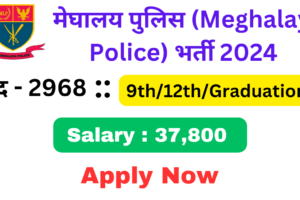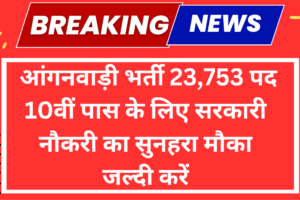Are you searching for BDS full form in Medical, BDS course details?
BDS is a professional degree program in dentistry that is designed to provide students with a wide range of knowledge and skills related to oral health, dental diseases, dental science, and clinical practice.
It emphasizes the importance of oral health and the role of dentists in healthcare.
It prepares students to become qualified and skilled dental professionals who can treat, diagnose, and prevent various dental and oral health issues.
This article will include information about the bds course details, course fees, course duration, eligibility criteria, subject covered, potential career options, top colleges, salary, and more.

BDS Course Details
Main Key Points
| BDS Full Form | Bachelor of Dental Surgery |
| Course Duration | 4 Years +1 Year Internship |
| Admission Process | Academic + Entrance Exam ( NEET ) |
| Study | Related to Dental Surgery |
| Job Profile | Dentist, Dental Surgeon, Orthodontics, Pedodontics, Periodontics, Prosthodontics, Oral Surgery, Endodontics, etc. |
| Course Fees | ₹50K – ₹12 Lakhs |
| Salary | ₹30K – ₹60K ( As a Fresher ) |
| Higher Study | MDS ( Master of Dental Surgery ) |
What is the Full Form Of BDS?
The full form of BDS is ” Bachelor of Dental Surgery ” and is an undergraduate professional degree program in the field of dentistry.
What is BDS Course?
The BDS (Bachelor of Dental Surgery) course is a professional degree course after the 12th and is awarded to the students who successfully complete the program of study in the field of dentistry.
The BDS curriculum is comprehensive and covers various aspects of dental education and practice including both theoretical lectures and practical clinical training.
It is 5 years course, 4 years include in-depth knowledge and understanding of various theoretical concepts related to dentistry and oral health, and 1-year mandatory internship during this period, students work in dental clinics, hospitals, or institutions under the guidance of experienced practitioners.
It is designed to train students to become dental professionals who can be capable of diagnosing and treating various oral health issues.
That prepares individuals to become dentists who can treat and diagnose diseases and conditions related to teeth oral cavity, loose teeth, bleeding, cracked teeth, gum disease, oral cancer, tooth erosion, etc.
BDS Eligibility Criteria
The eligibility criteria for admission to a BDS ( Bachelor of Dental Surgery ) can vary significantly based on the college and university so here are some common eligibility criteria to join BDS Course.
1. Educational Qualifications
Students must have completed 12th science with Physics, Chemistry, Biology, and English( PCBE ) from a recognized board to get admission to the BDS program.
2. Minimum Percentage or Grade
The minimum percentage or grade requirement for a BDS course can vary based on the specific institution you are applying to.
It often ranges between 50% to 60% aggregate marks in the 10+2 (or equivalent) examination, depending on the college and category.
3. Entrance Exam
BDS students are required to take entrance exams specific to dental programs. NEET-UG (National Eligibility cum Entrance Test) is compulsory for admission to the BDS course, without NEET you can not get admission to the BDS course.
4. Reservation Quotas
For students from these categories ( ST, SC, OBC, EWS, etc. ) specific reservation quotas might have relaxation in terms of marks, age, fees, etc.
5. Documents Required
Students will need to verify and submit various documents such as a 10th and 12th mark sheet, NEET scorecard, caste certificate, proof of age, identity proof, and other relevant documents.
Age Limit for BDS Course
Candidates usually need to be at least 17( Seventeen ) years old at the time of admission in order to pursue the BDS ( Bachelor of Dental Surgery ) course.
Generally, there is no specific upper age limit for entry into dental school to get admission to the BDS course.
BDS Course Duration
The BDS (Bachelor of Dental Surgery) course duration is typically 5 years that covers both theoretical and practical components.
The first 4 years include classroom lectures, practical training, and clinical rotations, covering various aspects of dental science and 1-year compulsory internship.
The first 4 years are all about an academic study that focuses to build a strong base related to dentistry.
During 1 year of internship, the students have to work in hospitals, dental clinics, and other healthcare places to improve their practical abilities to provide safe and effective treatment.
Exam Type – Semester Wise
Each academic year is divided into two semesters, each semester covers a defined set of the subjects and syllabus of the year depending on the specific curriculum and institution.
The semester system provides a clear framework for tracking student progress and ensuring a comprehensive assessment of their knowledge and skills during that time period.
It has become widely adopted by many colleges and universities because it positively impacted focus learning, reducing pressure, skill development, continuous engagement, regular assessment, flexibility, and many more.
BDS Course Fees
The fees for BDS courses can vary significantly depending on the college or university based on their reputation, facilities provided, location, and other factors.
Government or public dental colleges generally offers lower tuition fees compared to private colleges for BDS ( Bachelor of Dental Surgery ) course and it can change from year to year.
₹50K – 3 Lakhs as per institute or state ( Government )
₹3 Lakhs – 12 Lakhs as per institute or state ( Private )
Salary after BDS Course
The salary after completing a BDS course can vary based on several factors, including the location of the service, type of practice, based on experience and skills, knowledge, expertise, and the demand for dental services in that area.
Here are approximate figures based on the particular sectors and roles which can change over time.
1. Government Sector
Dentists who want to work in government hospitals or clinics have salaries ranging from ₹30K – ₹50K per month and this can change depending on the level of government position.
2. Private Sector
Dentists who work in private dental clinics or establish their own private practices have the potential to earn significantly more.
Basically, it depends upon the reputation you have built, your experience and expertise, and what number of patients you can see.
So considering all these points you can earn anywhere ranging from ₹50K to ₹1.5 Lakh per month.
3. Academic/Teaching Roles
After completing the BDS course, dentists who go for the teaching sector and join any academy with salaries starting from ₹35K to ₹50K.
4. Consulting and Corporate Dentistry
Dentists who want to work as consultants for dental product companies, corporate dental chains, and dental insurance providers can earn anywhere from ₹30K to ₹50K per month.
5. Specialization
Dentists who want to pursue postgraduate degree courses in specialization (MDS) in fields like orthodontics, prosthodontics, oral surgery, periodontics, etc.
They can get higher salaries from ₹50K to ₹2 Lakhs due to their specialized skills.
6. Experience and Reputation
Your salary as a dentist can increase significantly over time as you gain experience and build a strong reputation in your chosen specialized field.
Your experience and reputation can increase your demand and eventually, that can contribute to your higher earning potential.
Their salaries can range from ₹50K to ₹1.5 lakh or more per month.
Subjects list for BDS Course
1st Year
- Human Anatomy Embryology, Histology and Medical Genetics
- General Human Physiology, Biochemistry Nutrition and Dietetics
- Dental Anatomy, Embryology and Oral Histology
2nd Year
- General Pathology and Microbiology
- General and Dental Pharmacology and Therapeutics
- Dental Materials
- Pre-Clinical Conservative
- Pre-Clinical Prosthodontics
3rd Year
- General Medicine
- General Surgery
- Oral Pathology and Oral Microbiology
4th Year
- Public Health Education
- Periodontology
- Orthodontics and Dentofacial orthopedic
- Oral Medicine and Radiology
- Oral and Maxillofacial Surgery
- Conservative and Endodontics
- Prosthodontics and Crown and Bridge
- Pediatric and Preventive Dentistry
Advantages of BDS Course
The BDS course offers numerous advantages, so you have to ensure that you should have a genuine interest in dentistry and a commitment to learning and improving throughout your career.
1. Healthcare Profession
The dentist is a noble profession that allows you to directly help people improve their oral health by checkups, cleaning, treating cavities, fixing teeth, and providing oral health education.
2. Job Opportunities
As a Dentist, you have chances of getting job opportunities globally after completing the BDS course.
3. Job Security
The need for dental care is ongoing, so no need to worry about job security.
4. Varied Specializations
After the BDS course, you can choose to specialize in the most interesting areas like oral surgery, Endodontics, orthodontics, periodontics, Oral Medicine and Radiology, Aesthetic Dentistry, and Aesthetic Dentistry.
5. Financial Reward
As a dentist, you can find it financially rewarding, especially with growing dental health awareness and the need for quality oral care.
6. Own Clinic
You can open your own dental clinics and find autonomy to manage your practice.
7. Skill Development
The BDS course equips you with various clinical and practical skills, including patient treatment, technical expertise, and problem-solving.
8. Flexible Work Hours
As per your practice, you might have flexibility in setting your work hours and getting time for your personal life.
9. Community Impact
As a dentist, you can get a chance to positively impact your community by providing oral health and treating dental problems.
10. Continual Learning
Dentistry is a field that constantly evolves with new techniques and technologies, ensuring you’ll always have opportunities to learn and grow.
11. Respect and Recognition
As a dentist, you can get respect from society due to your role in treating people’s oral health.
12. Personal Satisfaction
As a dentist, you can help patients to regain their smiles, and reducing dental pain can be personally fulfilling.
13. International Opportunities
A BDS degree from India can provide opportunities abroad for further studies, specialization, or practice.
14. Diverse Work Environments
As a dentist, you can work in various fields including private clinics, hospitals, research institutions, and academic positions.
Disadvantages of the BDS Course
Along with the advantages, there are also disadvantages and challenges of the BDS course that you should be aware of.
1. Competitive Entrance Exams
Getting admission into a good college/university that offers BDS courses can be highly competitive, and requires high scores in entrance exams.
2. Long Course Duration
BDS is a 5-year long duration course, which can feel like a significant commitment, especially if you’re eager to start working sooner, so you need to keep patience.
3. High Responsibility
Dentists are responsible for the oral health and well-being of their patients, which can be highly responsible work.
4. Emotional Stress
As a dentist, you have to deal with patients’ pain, dental anxiety, and unexpected complications that can be an emotional challenge for you.
5. Patient Management Challenges
As a dentist, you may have to face Managing difficult patients, communicating complex procedures, and dealing with patient expectations can be challenging.
6. Financial Costs
If you are from low-income background then Pursuing a BDS course
BDS Vs MBBS
| Sr. | BDS | MBBS |
| Full-Form | Bachelor of Dental Surgery | Bachelor of Medicine, Bachelor of Surgery |
| Course Duration | 4 Year +1 Year Internship | 4.5 Year + 1 Year Internship |
| Admission Process | Academic + Entrance Exam | Academic + Entrance Exam |
| Study | Related to Dental Surgery | Based on Modern Medicine |
| Job Profile | Dentist | General Physician |
| Course Fees | 2 Lakh – 7 Lakh | 5 Lakh – 25 Lakh |
| Higher Study | Generally No Need | Need |
BDS Vs BAMS
| Sr. | BDS | BAMS |
| Full-Form | Bachelor of Dental Surgery | Bachelor of Ayurveda, Medicine, and Surgery |
| Course Duration | 4 Year +1 Year Internship | 4.5 Year + 1 Year Internship |
| Admission Process | Academic + Entrance Exam | Academic + Entrance Exam |
| Study | Related to Dental Surgery | Based on Ayurvedic Medicine |
| Job Profile | Dentist | General Ayurvedic Doctor |
| Course Fees | 2 Lakh – 7 Lakh | 40K – 1.5 Lakh |
| Higher Study | Generally No Need | Need |
Required Skills for BDS Students
1. Problem-Solving Abilities
Dentists have to face complex cases that require critical thinking and problem-solving skills to determine the best treatment options for patients.
2. Communication Skills
As a dentist, you should have effective communication to explain procedures, treatment plans, and post-treatment care, and build rapport with patients.
3. Strong Scientific Foundation
Dentists require a solid understanding of basic sciences like anatomy, biochemistry, microbiology, and physiology is essential for dealing with the complexities of dental treatments and oral health.
4. Teamwork and Collaboration
As a dentist, you have to work effectively in a team is crucial because dental treatments often involve interdisciplinary collaboration with dental assistants, dental hygienists, and other healthcare professionals.
5. Time Management
It requires effective time management to balance coursework, clinical duties, and practical sessions.
6. Empathy and Patience
Dentists should have empathy, patience, and the ability to make patients feel comfortable is essential for a positive experience because dental procedures can be nervous, Discomforted, or even painful for patients.
Career Opportunities after BDS Course
After completing the BDS ( Bachelor of Dental Surgery ) course, you will have several career opportunities to choose from the dentistry fields that can increase your earning potential, overall well-being, and good quality of life.
1. General Dental Practice
Dental general practice can be a fulfilling career choice that allows you to provide essential dental care by opening your own dental clinic or joining an established practice. You can build a patient base, and have greater control over your work environment.
2. Specialization Practice
After the BDS course, you can pursue further specialization in various areas of dentistry. So you can go for postgraduate education (MDS or equivalent) in fields such as orthodontics, prosthodontics, periodontics, pediatric dentistry, oral surgery, endodontics, etc.
3. Academia and Research Area
If you’re interested in teaching and research, you can join dental colleges and universities as a faculty member after completing the bds course.
You can go for further education, such as a Master’s or Ph.D. in a dental specialty or related field because that involves training future dentists while conducting research in dental sciences.
4. Dental Industry
You can work for dental industries that deal with dental equipment and material manufacturers, pharmaceutical companies, and pharmaceutical products which include medications, vaccines, medical devices, and other healthcare-related products.
5. Cosmetic Dentistry
Cosmetic Dentistry includes products and procedures related to improving the appearance of teeth, gums, and smiles. It mainly focuses on enhancing the aesthetic aspects of a person’s oral health.
Here are some key areas like teeth whitening, veneers, and smile makeovers that can attract patients seeking aesthetic improvements.
6. Dental Journalism
Dentists can use their dental knowledge with writing skills to become dental journalists, writing reports, blogs, and articles about oral health and dental advancements.
7. Consultancy and Training
You can make more money by offering consultancy services to dental practices or conducting training sessions on new techniques and technologies.
Job Profiles
| Dentist | Dental Surgeon |
| Orthodontics | Prosthodontics |
| Pedodontics | Oral Surgery |
| Periodontics | Endodontics |
Courses after BDS Course
There are many courses that can be pursued by us but they can be classified into two types of courses.
- Diploma courses
- Degree Courses
Diploma Courses after BDS
- Post Graduate Diploma in Dental Therapy
- Post Graduate Certificate in Endodontics
- Post Graduate Diploma in Dental Materials
- Post Graduate Diploma in Orthodontics
Degree Courses after BDS
- Master of Dental Surgery in Community Dentistry
- Master of Dental Surgery in Periodontics
- Master of Dental Surgery in Prosthodontics & Crown & Bridge
- Master of Dental Surgery in Pediatric Dentistry
- Master of Dental Surgery in Oral Medicine and Radiology
- Master of Dental Surgery in Public Health Dentistry
- Master of Business Administration in Hospital Management
Top Colleges –
- Manipal College of Dental Science, Mangalore
- University School of Management Studies, New Delhi
- SRM Institute of Science and Technology, Chennai
- Shri Ramchandra University, Chennai
- Vydehi Institute of Medical Sciences and Research Center, Bengaluru
- KIIT University, Bhubaneswar
- Maulana Azad of the Institute of Dental Science, New Delhi
- NIMS University, Jaipur
- KGMU – King George’s Medical University, Lucknow
- Nair Hospital Dental College, Mumbai
FAQs
Q1 – Is BDS easier than MBBS?
Both the BDS and MBBS course have their own requirements and challenges because both have different curriculum, course duration, the scope of knowledge, specialization, examinations and assessments, clinical practice, and practice skills.
Q2 – What are the fees of BDS?
Generally, It varies based on various factors like college, university, and country and it can also change over time so you can expect 2 lakhs to 12 lakhs.
Q3 – Can I do dentistry without biology?
No, you can not pursue dentistry without biology. Biology is a fundamental subject in the field of dentistry and other medical fields like MBBS, BHMS, BAMS, physiotherapy, etc.
Q4 – Which medical course is best?
The best medical course depends on interest, career goals, and strength so here are some popular medical courses such as MBBS, BDS, BAMS, Bachelor of Physiotherapy, B.Pharm, etc.










